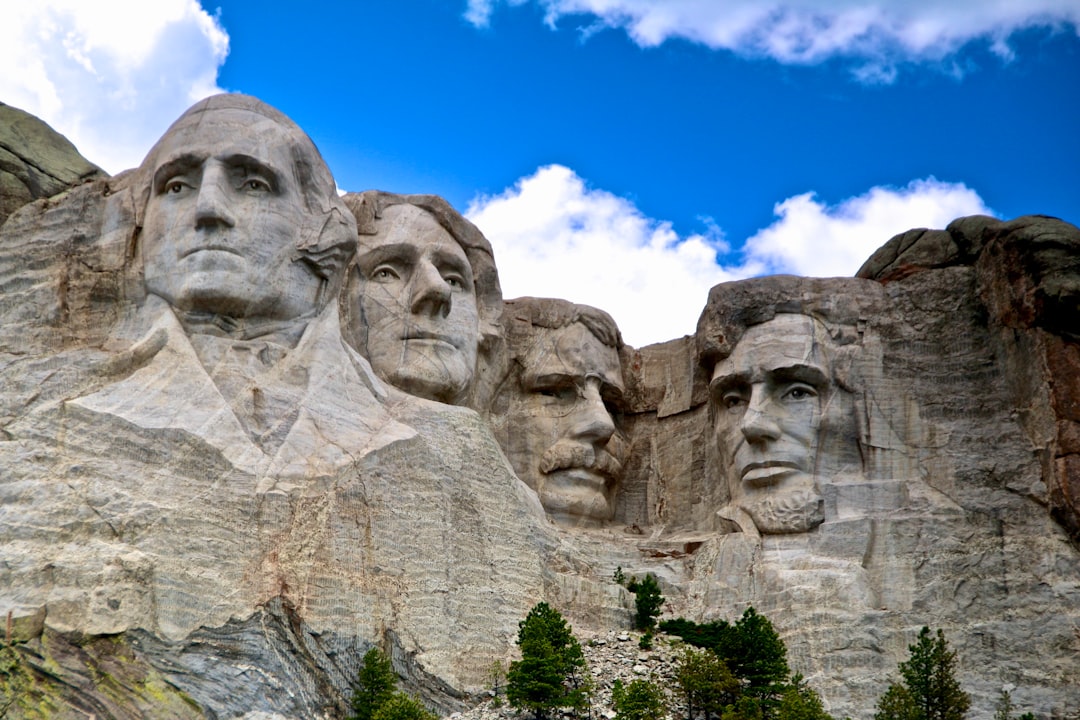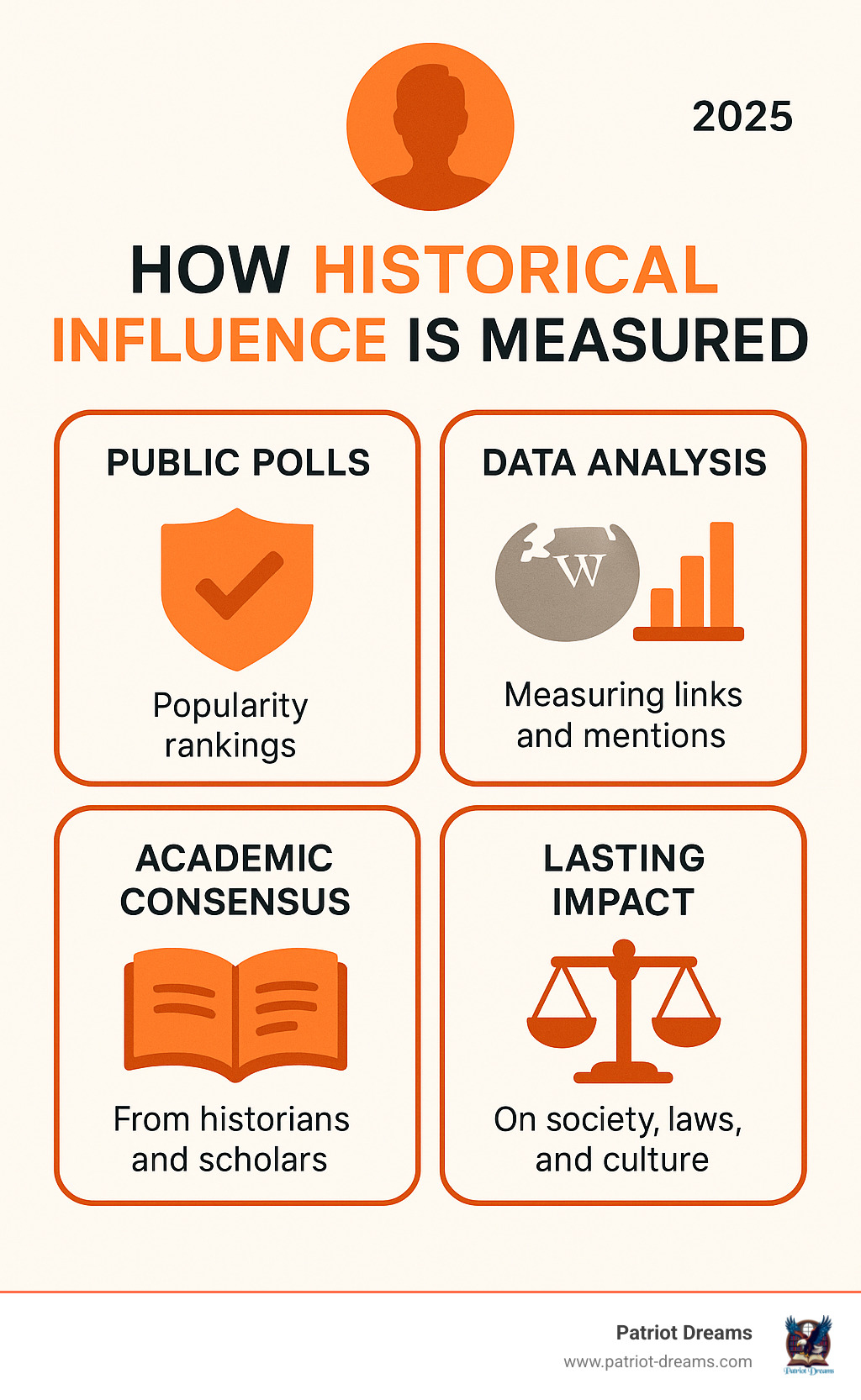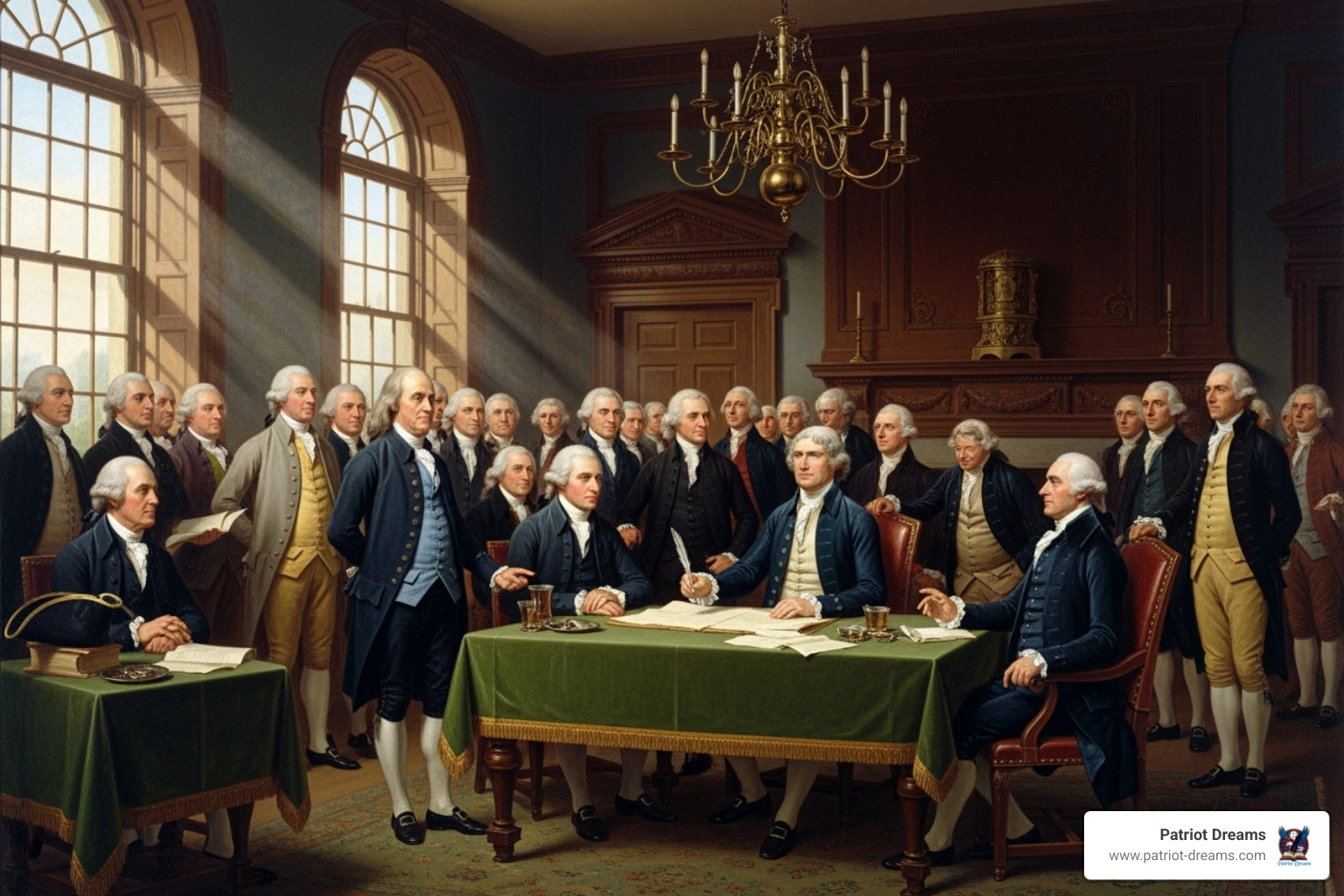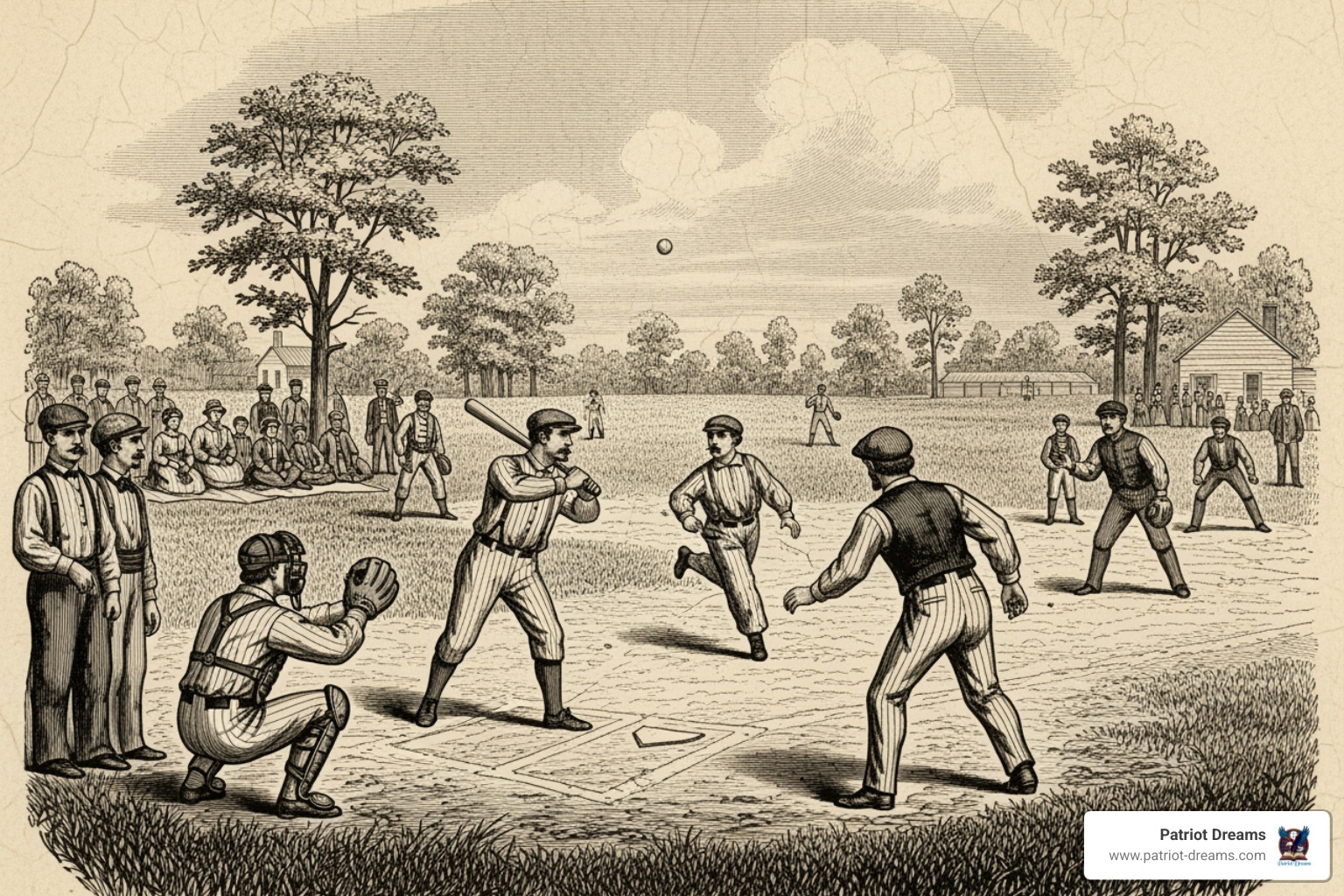Beyond the Books: Exploring America's Most Iconic Personalities and Places


Why Historical American Figures Shape Our National Identity
Historical American figures have shaped our nation, from its principles to its dreams. Here are some of the key figures who consistently rank at the top:
Most Influential Historical American Figures:
- Abraham Lincoln – Led the nation through Civil War and abolished slavery
- George Washington – First President and Revolutionary War commander
- Martin Luther King Jr. – Civil rights leader who championed non-violent change
- Benjamin Franklin – Founding Father, inventor, and diplomat
- Thomas Jefferson – Author of the Declaration of Independence
The question "Who is the greatest American?" sparks endless debate. In 2005, over 2.4 million Americans voted in the Discovery Channel's "The Greatest American" series, with Ronald Reagan taking first place. Meanwhile, data scientists analyzing Wikipedia pages and Google Books found different results, showing how subjective these rankings are.
What makes someone historically significant? It's not just about fame. These figures changed how we live, think, and govern. They solved massive problems, stood for what was right, and left legacies that still guide us.
Some earned their place through political leadership (Washington, Lincoln), others drove social change (Harriet Tubman, Susan B. Anthony), and still others transformed daily life through innovation (Thomas Edison, Henry Ford).
Understanding these figures helps us see how America was formed. Their stories reveal the struggles, triumphs, and ongoing work of building a nation.

Defining Greatness: Who Ranks as America's Most Influential?
What makes someone truly influential in American history? Measuring the impact of historical American figures is complex and often sparks debate.
Two main approaches shape how we think about influence. Qualitative interpretation involves historians studying letters, speeches, and context to understand not just what figures did, but why it mattered. Quantitative analysis counts things, like mentions in books or links on Wikipedia. Both approaches offer valuable insights.
The most famous example of a public ranking was in 2005, when a TV poll of 2.4 million Americans for "The Greatest American" surprised many. Ronald Reagan took first place, followed by Abraham Lincoln and Martin Luther King Jr. George Washington and Benjamin Franklin rounded out the top five. George W. Bush was the highest-ranked living person at sixth, and Oprah Winfrey the highest-ranked woman at ninth.
This poll revealed that recent memory and media coverage heavily influence public perception. People often vote for figures they feel connected to, not necessarily those with the most objective historical impact.
Data scientists Steve Skiena and Charles Ward took a different approach, analyzing Wikipedia pages and Google Books to algorithmically measure historical significance based on links, visitor counts, and updates. They found that 39 of the top 100 spots went to former presidents. Abraham Lincoln consistently ranked high, showing his influence transcends different measurement methods.
However, even this "objective" data has biases, often favoring men, white Americans, and English speakers. The results can sometimes reflect internet popularity over historical achievement.
Smithsonian Magazine recognized these limitations and created a hybrid approach for their Meet the 100 Most Significant Americans of All Time feature. They combined hard data with editorial judgment, organizing figures into categories like "Presidents," "Rebels & Resisters," and "First Women."
| Ranking | Smithsonian's "100 Most Significant Americans" (First Women) | Key Insight into Pioneering Influence |
|---|---|---|
| 1 | Harriet Tubman | Pioneered freedom for hundreds, an enduring symbol of courage |
| 2 | Susan B. Anthony | Led the charge for women's suffrage, shaping democratic rights |
| 3 | Eleanor Roosevelt | Redefined the First Lady role, advocating for human rights |
| 4 | Rosa Parks | Sparked the Civil Rights Movement with a singular act of defiance |
| 5 | Sandra Day O'Connor | Broke judicial barriers as the first female Supreme Court Justice |
The ongoing conversation about influential figures reflects our changing values and measurement tools. We continue to explore which historical American figures shaped us most, whether through public votes or complex algorithms. What's clear is that influence isn't just about fame—it's about changing how people think, live, and dream.
A Pantheon of Patriots: America's Most Influential Historical American figures

America's most influential Historical American figures weren't just famous; they fundamentally changed how we live, think, and see ourselves. Their influence spans different fields, from science to civil rights, weaving the complex fabric of American identity. They shared traits of leadership, innovation, and the courage to drive social change, often defining what it means to be American by reinforcing our ideals or challenging us to meet them.
Political Titans: The Founding Fathers and Other Historical American figures
The story of American politics begins with the Founding Fathers, who created a system of government that has endured for over two centuries.
As a crucial figure in American history, George Washington led the Continental Army to victory and could have become a king. Instead, he voluntarily gave up power. As the first President (1789-1797), he turned ideals into a practical government, setting precedents for presidential conduct that still influence the office. His character was shown at Valley Forge, where he stayed with his starving soldiers, and his choice to step down after the war cemented his legacy as, in the words of Henry Lee, "first in war, first in peace, and first in the hearts of his countrymen."
Abraham Lincoln faced the nation's greatest crisis: the Civil War. As the 16th President, he preserved the Union and transformed its purpose with the Emancipation Proclamation, freeing millions of enslaved people. His leadership redefined American freedom and set the stage for future civil rights struggles.
Thomas Jefferson penned the inspiring words of the Declaration of Independence: "We hold these truths to be self-evident, that all men are created equal." His Louisiana Purchase doubled the nation's size. Despite the contradiction of owning slaves, his ideals continue to challenge America to build a more perfect union.
Benjamin Franklin was a quintessential Renaissance man: an inventor, diplomat, scientist, writer, and Founding Father. He secured French support during the Revolution, contributed to the Constitution, and made key scientific findies. His life embodied the American dream of self-improvement, rising from humble beginnings to become a respected figure in America and Europe.
These political giants created America's foundation. Their stories reveal how individual courage can shape a nation's destiny. At Patriot Dreams, you can find more info about our app that bring these foundational stories to life.
Social Reformers: Voices for Change
While politicians shaped government, other Historical American figures fought to make America's promises real for everyone. These social reformers changed society from the ground up.
Martin Luther King Jr. was a powerful voice for justice. Leading the Civil Rights Movement with non-violent activism, he showed that moral force could overcome injustice. He knew lasting change required changing hearts, not just laws, and his peaceful approach led to landmark civil rights legislation that dismantled legal segregation.
Harriet Tubman showed extraordinary courage. After escaping slavery, she became a conductor on the Underground Railroad, returning to the South repeatedly to lead hundreds to freedom without ever losing a passenger. Her bravery embodied the principle that freedom isn't real until it's for everyone, making her one of America's greatest heroes.
Susan B. Anthony dedicated her life to women's suffrage. Despite being arrested for voting and facing ridicule, she never gave up. Her persistence laid the groundwork for the 19th Amendment, which gave women the right to vote, proving how determination can achieve the seemingly impossible.
These reformers dedicated their lives to expanding America's promise of liberty and justice.

Innovators and Scientists
American ingenuity has always been a defining characteristic. These innovators and scientists transformed how people live and work around the world.
"The Wizard of Menlo Park," Thomas Edison held over a thousand patents. He invented the practical light bulb and the systems to power it, and his phonograph brought recorded sound into homes. Edison excelled at turning ideas into practical products for ordinary people.
Henry Ford revolutionized manufacturing. While he didn't invent the car, his assembly line made them affordable for average Americans, changing how people lived and worked. He also paid his workers well enough to buy the products they made, helping build the middle class.
The Wright Brothers, Orville and Wilbur, achieved the dream of flight. Their first flight at Kitty Hawk in 1903, though only 12 seconds long, changed the world, enabling global travel and changing warfare. Their success came from a methodical approach, solving the core problems of flight through careful experimentation.
Albert Einstein, a German-born immigrant, revolutionized physics with his Theory of Relativity. His work underpins modern technologies like GPS and nuclear energy. Fleeing Nazi persecution, he also embodied America's role as a refuge, reminding us that openness to immigrants is a source of strength.
Cultural Icons and Artists
America's cultural influence comes from the artists and entertainers who captured the American spirit.
Mark Twain created beloved characters in American literature. Works like Adventures of Huckleberry Finn used humor and social commentary to address serious issues like racism, making them accessible to all. His work established a distinctly American voice in literature that was both entertaining and thoughtful.
Walt Disney transformed animation into an art form and built an entertainment empire. From Mickey Mouse to theme parks, his creations continue to shape childhoods globally. His genius was understanding the universal hunger for stories of hope and wonder.
Elvis Presley changed popular music forever. By blending blues, gospel, and country, he created Rock and Roll and became its first superstar, giving youth a new form of expression. His influence extended beyond music, representing a new youth culture that valued authenticity over conformity.
Oprah Winfrey built a media empire, becoming an influential media mogul and philanthropist. She used her platform to promote education and social justice, proving the power of authentic connection with an audience. Her rise from poverty embodies the American dream, and her philanthropy shows how success can lift entire communities.
Key works by these cultural icons:
- Mark Twain: The Adventures of Huckleberry Finn, The Adventures of Tom Sawyer
- Walt Disney: Snow White and the Seven Dwarfs, Disneyland theme park
- Elvis Presley: "Hound Dog," "Jailhouse Rock," and legendary live performances
- Oprah Winfrey: The Oprah Winfrey Show, O, The Oprah Magazine, Oprah Winfrey Network
These figures show that American influence is also about the stories, music, and dreams we inspire in others.
Frequently Asked Questions about American Icons
Here are answers to common questions about America's most influential Historical American figures.
Who is often ranked as the most influential American?
The answer depends on how influence is measured. Abraham Lincoln often tops historical analyses for his Civil War leadership and ending slavery. George Washington is also consistently ranked for setting the presidential precedent. However, public opinion can differ. A 2005 poll named Ronald Reagan number one, showing how recent memory shapes public views. Data-driven analyses, which measure digital mentions, offer another perspective, though Lincoln still ranks high.
How has the perception of influential figures changed over time?
Perceptions of Historical American figures evolve. What one generation saw as heroic, the next might see as problematic. For example, Christopher Columbus is now viewed more critically for his impact on indigenous populations. Figures like Thomas Jefferson are appreciated for their ideals while also being acknowledged for personal contradictions, like owning slaves.
Meanwhile, once-overlooked figures like Harriet Tubman and Martin Luther King Jr. are gaining greater recognition. The contributions of women and people of color are increasingly recognized, which is essential for telling the full story of America.
Historical context is crucial; actions normal in one era may be shocking today. The ongoing debates about these figures are healthy for a democracy. Re-examining our heroes helps us understand them more completely, learning from their achievements and mistakes. As new evidence and voices emerge, our understanding deepens. This isn't revisionism; it's just good history.
What fields have produced the most influential Americans?
Politics has traditionally dominated influence lists, with presidents like Washington and Lincoln shaping the nation. But influence extends far beyond politics. Innovators like Thomas Edison (light bulb) and Henry Ford (assembly line) changed daily life and helped build the middle class. Cultural figures like Mark Twain (literature) and Elvis Presley (music) have also had enormous influence. Social reformers like Martin Luther King Jr. have a lasting impact, with his non-violent approach inspiring movements worldwide. Influence comes from all fields, and at Patriot Dreams, we believe these diverse stories show how ordinary people can leave extraordinary legacies.
Conclusion: Your Journey Through American History
When you dive into the stories of Historical American figures, you're not just memorizing names and dates from a dusty textbook. You're starting on a fascinating journey that reveals who we are as Americans and how we got here.
Think about it: every time you vote, you're participating in a system that George Washington helped establish. When you stand up for what's right, you're following in the footsteps of Martin Luther King Jr. and Susan B. Anthony. When you innovate or create something new, you're channeling the spirit of Thomas Edison and the Wright Brothers.
These Historical American figures teach us profound lessons about leadership under pressure. Washington could have become a king, but he chose to step down. Lincoln held the nation together when it was literally tearing apart. They show us that true leadership often means making the hard choice, not the popular one.
Their stories also reveal how innovation and determination can change everything. Henry Ford didn't just build cars; he revolutionized how we work and live. Martin Luther King Jr. didn't just give speeches; he transformed how we think about justice and equality. These individuals saw problems and refused to accept that "this is just how things are."
Perhaps most importantly, exploring these legacies helps us understand that history isn't something that happened to other people long ago. It's the foundation we're still building on today. The debates about freedom, equality, and opportunity that consumed Jefferson and Lincoln? We're still having those conversations.
At Patriot Dreams, we're passionate about making these connections real and personal. We believe that understanding where we came from helps us figure out where we're going.
The stories that shape us aren't just about famous presidents and inventors. They're about ordinary people who did extraordinary things, often against incredible odds. They're about the choices that defined generations and the courage that built a nation.
Explore American stories and historical sites with Patriot Dreams and uncover the rich, interconnected stories that continue to shape our nation.
Join the Patriot Dreams Community
Download the app today and start your journey through American history and personal legacy.

Explore Our Latest Insights
Dive into stories that shape our American legacy.




